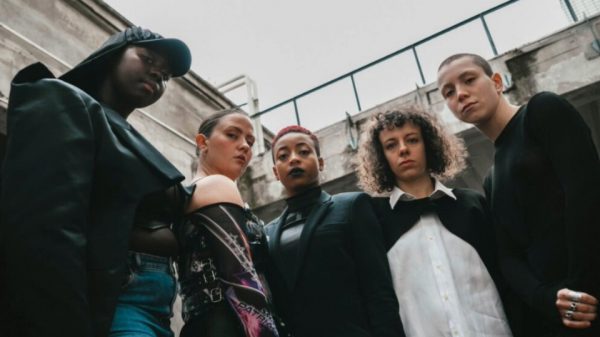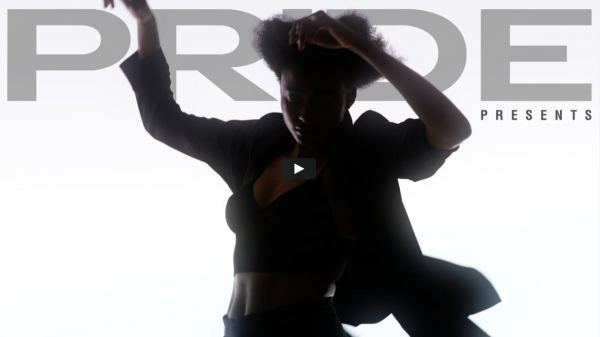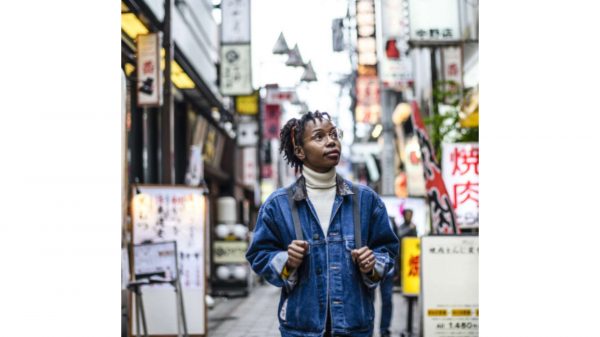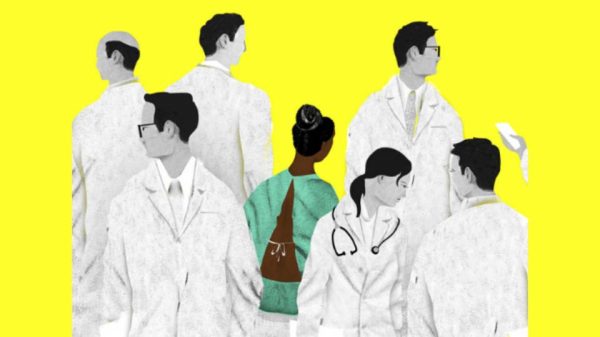TRISHES is an artist who explores the world and humanity within her music. Born in Trinidad, raised in California, she’s a quirky and contemplative artist who combines elements of both cultures for her signature music style. Think of the sultriness of Lorde and Lana Del Rey, but with spoken word monologues and the inclusion of issues that she finds pressing: the government, language and self-awareness, in particular. In short, it’s the most conscious pop you’ll hear this year.
Two of her most recent songs, ‘Money’ and ‘Hydra’, make up part of what she calls the ‘EGO era’. They will contribute to building up her EP, set for release in the near future. ‘Money’ focuses on the oppressive currency system that only works for those who have money, while ‘Hydra’ addresses social oppression and is a message to people who incarcerate those who are different – especially people of colour and people of faith.
We spoke to TRISHES about her life, culture and music and the difficult topics she brings up within it.
Hi TRISHES! You have quite a unique style and particularly the face paint you wear is something that I’m really interested to find out more about. What does the makeup you wear mean to you, and does it have any connotation to the issues you sing about?
TRISHES: I’m really interested in the idea of anonymity and how it affects our thoughts, feelings and actions. When we disassociate with our identities we do things we wouldn’t normally do – and that can vary from making us crueler to making us more courageous. The original forms of anonymity were masks and face paint. They helped warriors fight in battle or aided our connection to the spiritual world during rituals. The newest form of anonymity is the internet. I put on face paint to help me mentally separate myself from the conscious self and access my primal self and my higher, spiritual self. The act of putting the faceprint on itself is a ritual; almost a brief meditation, that helps me move out of my typical thought process.
When people meet me after they’ve seen me perform they’re usually pretty surprised at my demeanour because the entity on stage isn’t who I am in my day to day life or interactions.

It must be quite difficult to come up with music with topics like the ones that you address. What is your songwriting process?
TRISHES: A lot of artists write tons of songs and then pick the best ones – which is a great process that leads to a collection of great songs. My goal however, is to discuss a collection of ideas, so the process of synthesizing those ideas happens far before the song. I will read about an idea, and then write my thoughts on it in essay form, then poetry or spoken word, and then eventually condense whatever conclusion I’ve come to into it’s final form as a song.
Particularly in the song ‘Hydra’, you talk about white oppression; there’s lyrics like, ‘You’re telling me go home where I came from’ gives the impression that you’ve had experiences with racism before. Have you? Can you tell me a bit about that?
TRISHES: I have had people tell me to go back to where I came from, particularly after expressing any criticism of the US. The sentiment is something along the lines of “if you don’t like it here, leave.” The thing that those people don’t understand is that I am so critical because I love the United States. I love the diversity of it and the ideology it was founded on. I want it to live up to that potential and that promise. In order for that to happen, it’s absolutely imperative that we are vocal about its shortcomings.
You do a lot of work linked to volunteering and helping resettle refugees. Could you tell me a bit about the work that you do and what drove you to start doing that in the first place?
TRISHES: I’ve had the privilege of volunteering both with refugees in Los Angeles as well as asylum seekers at the Tijuana/San Diego Border. I get a lot of anxiety hearing about the injustices happening in the US and the only thing that soothes it is doing something, however small, to work against those injustices.
I want to be careful to not feed any narrative of saviorism though. These people are extremely tough, intelligent and capable. As volunteers we help when it comes to language and cultural barriers. For families being resettled in LA we might help them fill out paper work or learn the public transport system, find jobs and housing. They do all the real work though, and it’s been one of the greatest joys of my life to watch them thrive.
How much of a part does your culture have to play on your music?
TRISHES: Aesthetically and philosophically, my culture plays a really large part in my music. When I was little in Trinidad we would celebrate Muslim, Hindu and Christian holidays and the ceremonial and visual aspects of these rituals were so beautiful to me. I think a lot of that is apparent in my live show and visuals because I love the intricacy of ritual. I love how people express their connection to a higher power.
Along with that, being from two different cultures, since I moved to the US when I was pretty young, is probably what began my fascination with the idea of two seemingly conflicting selves. I think a lot of immigrants feel conflicted between their two cultures.

All of your music videos are quite expressive and get across the things you are trying to say well. In the ‘Hydra’ video, the dance moves really were an expression of some of the lyrics. How important are your music videos to you?
TRISHES: I love making music videos. Film is so wonderful because it’s an expression of every art form combined: art, and movement and sound. Similar to spoken word, I think the music videos add a piece to the entire idea that can’t be found in the song alone. The ‘Money’ music video, for example, demonstrates how suffocating money’s existence can be, and how it can change us. I don’t think that’s something I really hit on in the song.
What’s the biggest message you want to get across with your music?
TRISHES: I want to address my own internal struggle in order to encourage others to address theirs. I think the core of external conflict lies in internal struggle. A lot of us don’t want to face our negative emotions, thoughts and biases because we’re taught that they’re shameful so we bury them instead of working through them. The problem with that is that they then arise out of our subconscious in harmful ways towards ourselves and others.
TRISHES’ ep, EGO, is out later this Spring. Follow her @trishesmusic on Twitter and Instagram.

































































